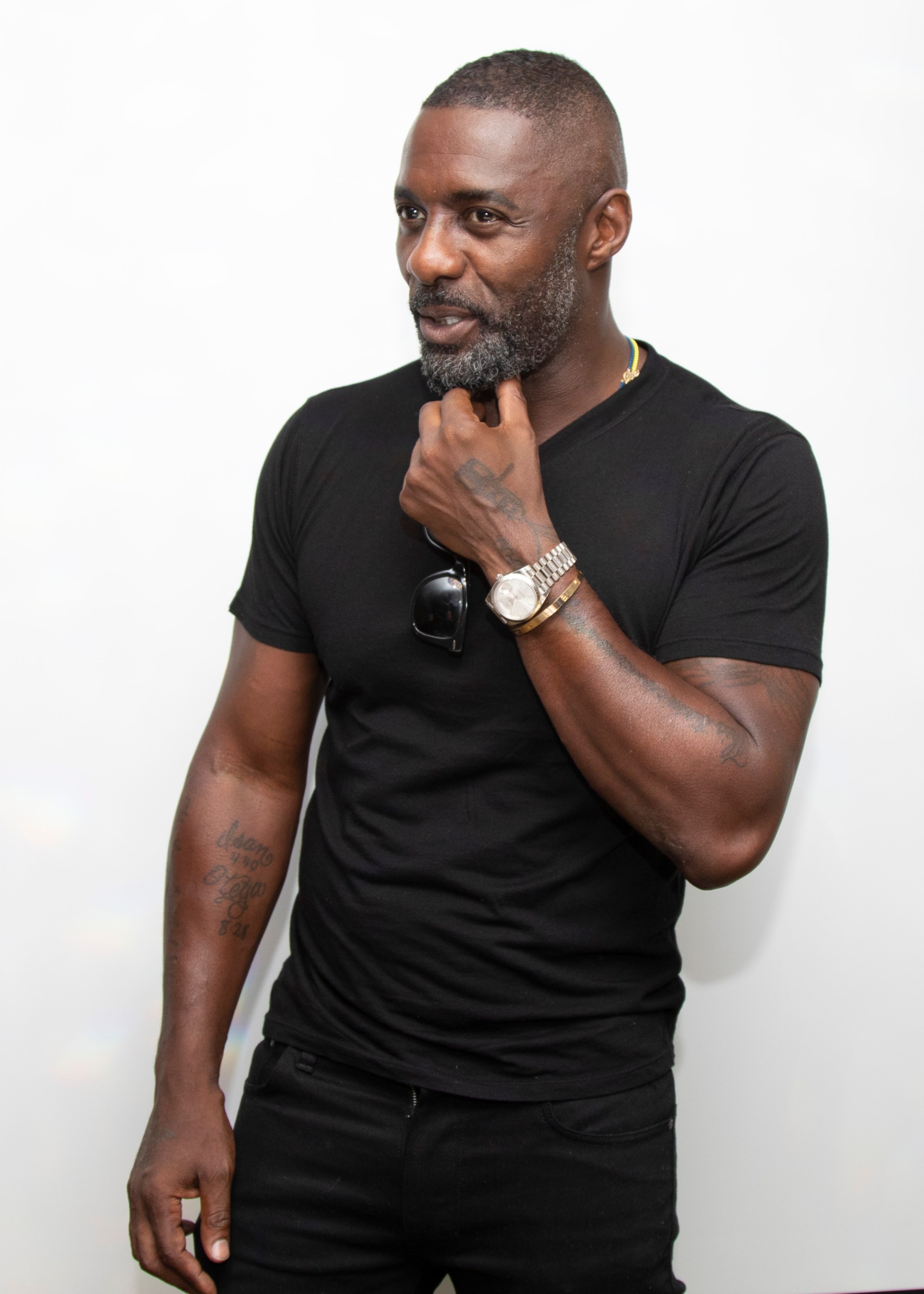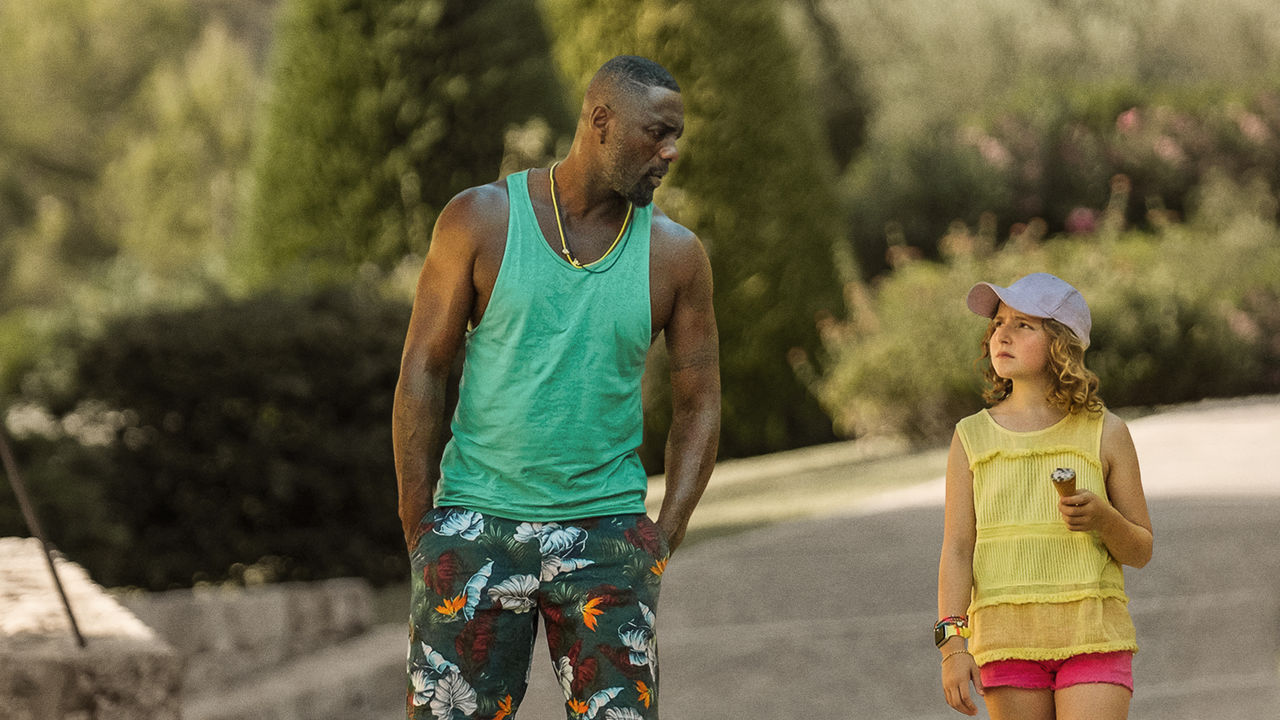
- Interviews
Idris Elba Embraces His Light Side in ‘Turn Up Charlie’
Idris Elba, the Golden Globe-winning British actor known for the dark police series Luther, is showing his lighter and comedic side in the new Netflix series Turn Up Charlie, in which he plays an unsuccessful DJ, who is also a messy man-child. “I really wanted to do something funny, something that was just lighthearted,” Elba said in Los Angeles, “and this was a great opportunity to bring all of the things in my life that people would not see.”
Charlie, a struggling DJ and eternal bachelor, is given a final chance at success when he reluctantly becomes a nanny to his famous best friend’s problem-child daughter (Frankie Hervey). It’s not a coincidence that Elba himself moonlights as a DJ (his first passion) in between acting gigs: “You see my own DJing and the life behind that, my friendship group. This show gives me an opportunity to show that and make fun of it a little.”
Elba, 46, born in London from African parents (Sierra Leone and Ghana), has recently been seen in such high-profile movies as Thor, Molly’s Game and Beasts of No Nation, and he has also made his directorial debut with the Jamaican London crime drama Yardie. He rose to fame with a role in the series The Wire and was seen in Pacific Rim and American Gangster. Then Luther arrived in 2010, and with it his international stardom.
“I definitely borrowed and begged a little bit from my life to bring to this character, Charlie. I myself have children, and this story involves a young girl to whom Charlie becomes a surrogate father,” says Elba, who has two teenage children, a boy and a girl (2019 Golden Globe Ambassador Isan Elba). “I make fun a bit of my own life because on one side my character is a DJ and my best friend is an actor. And as an actor, he is at the top of his game and his best friend who is a DJ is still struggling. In my friendship group, my guys, none of them are actors. So there’s this sort of interesting reality in the storyline between me and JJ’s character, where he’s the actor and I am the DJ and that is almost a bit of a true story between me and my friends in London,” says Elba, who commutes between the British capital New York.

Idris Elba and Frankie Hervey in a scene from Turn Up Charlie.
netflix
There is a fine line between fiction and reality that runs through Turn Up Charlie, says Elba, who often performs as DJ on the Spanish party island of Ibiza, where several scenes of the series were shot. “There’s this one scene in Turn Up where I am late for an opportunity to DJ at Lio, a big club in Ibiza,” he recounts, smiling. “And we shot it on a Monday and I had finished my DJ set at Lio at 6 AM! So I show up to set a bit tired and a bit late, understandably,” he adds with his famous grin. “That was really the crossroads of reality and fiction there. It was actually funny and we ended up using those takes.”
Idris (water in Latin) has an innate class and suave, easy masculinity, and it has often been rumored that he may be cast as the next James Bond. It’s mere speculation, and Elba has always, insistently denied the truth of it. “But the more I deny this rumor – I was never offered Bond, nor am I interested – the more people talk about it. It’s exasperating,” he says feigning outrage, again smiling his wry smile.
We ask him what he thinks about the Netflix vs. cinema debate, could too much streaming hurt the movie-going experience and dilute the art? “Look, Netflix has 400 million eyeballs on it or something like that,” he answers, “And I think it’s less about a debate about whether Netflix should do that or not and more about the opportunity for the art to be seen, regardless of how it’s seen. As much as we are in a position to create and tell stories if Netflix gives me a platform to be able to watch them, great. If the movies, I mean “cinema”, gives me a platform to watch my stories, great. I think we, as filmmakers, just need to remember how very lucky we are to have people who want to watch our stories. So what matters, for me, is that there is an appetite for these stories and the stories need to be creative and honest regardless of the platform.”

